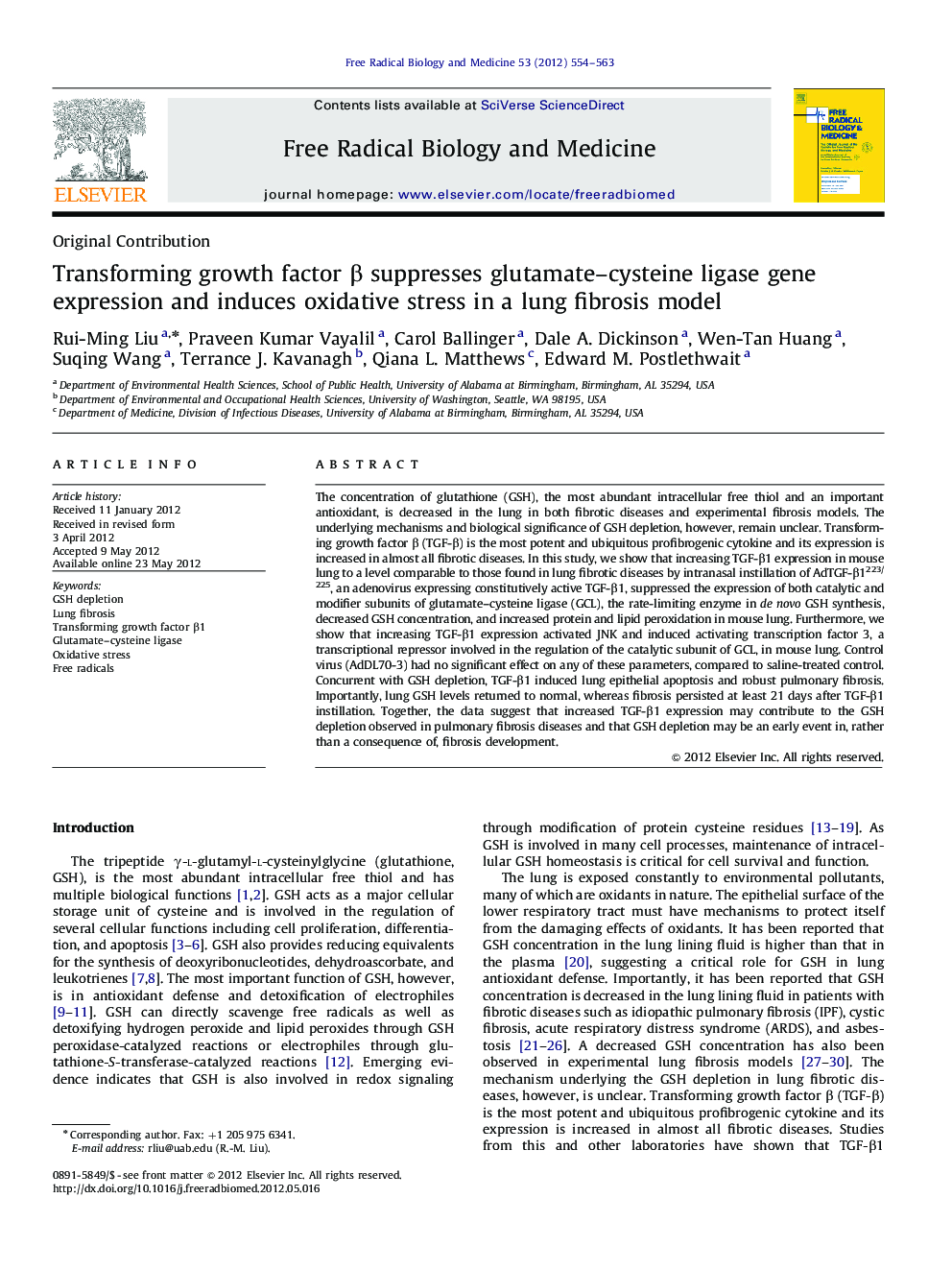| Article ID | Journal | Published Year | Pages | File Type |
|---|---|---|---|---|
| 1908680 | Free Radical Biology and Medicine | 2012 | 10 Pages |
The concentration of glutathione (GSH), the most abundant intracellular free thiol and an important antioxidant, is decreased in the lung in both fibrotic diseases and experimental fibrosis models. The underlying mechanisms and biological significance of GSH depletion, however, remain unclear. Transforming growth factor β (TGF-β) is the most potent and ubiquitous profibrogenic cytokine and its expression is increased in almost all fibrotic diseases. In this study, we show that increasing TGF-β1 expression in mouse lung to a level comparable to those found in lung fibrotic diseases by intranasal instillation of AdTGF-β1223/225, an adenovirus expressing constitutively active TGF-β1, suppressed the expression of both catalytic and modifier subunits of glutamate–cysteine ligase (GCL), the rate-limiting enzyme in de novo GSH synthesis, decreased GSH concentration, and increased protein and lipid peroxidation in mouse lung. Furthermore, we show that increasing TGF-β1 expression activated JNK and induced activating transcription factor 3, a transcriptional repressor involved in the regulation of the catalytic subunit of GCL, in mouse lung. Control virus (AdDL70-3) had no significant effect on any of these parameters, compared to saline-treated control. Concurrent with GSH depletion, TGF-β1 induced lung epithelial apoptosis and robust pulmonary fibrosis. Importantly, lung GSH levels returned to normal, whereas fibrosis persisted at least 21 days after TGF-β1 instillation. Together, the data suggest that increased TGF-β1 expression may contribute to the GSH depletion observed in pulmonary fibrosis diseases and that GSH depletion may be an early event in, rather than a consequence of, fibrosis development.
► Clinically relevant level of TGF-β1 decreases GSH in bronchoalveolar lavage fluid and lung tissue in mice. ► Clinically relevant level of TGF-β1 suppresses GCLC and GCLM expression in mouse lung. ► Clinically relevant level of TGF-β1 induces oxidative stress in mouse lung. ► Clinically relevant level of TGF-β1 activates JNK MAPK and induces ATF3 in mouse lung. ► GSH level returns to the normal, whereas fibrosis persists at least 21 days.
